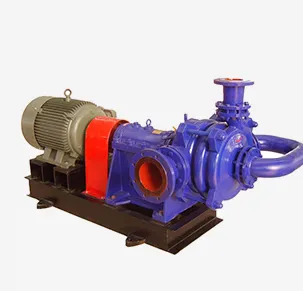Persian
- Afrikaans
- Albanian
- Amharic
- Arabic
- Armenian
- Azerbaijani
- Basque
- Belarusian
- Bengali
- Bosnian
- Bulgarian
- Catalan
- Cebuano
- Corsican
- Croatian
- Czech
- Danish
- Dutch
- English
- Esperanto
- Estonian
- Finnish
- French
- Frisian
- Galician
- Georgian
- German
- Greek
- Gujarati
- Haitian Creole
- hausa
- hawaiian
- Hebrew
- Hindi
- Miao
- Hungarian
- Icelandic
- igbo
- Indonesian
- irish
- Italian
- Japanese
- Javanese
- Kannada
- kazakh
- Khmer
- Rwandese
- Korean
- Kurdish
- Kyrgyz
- Lao
- Latin
- Latvian
- Lithuanian
- Luxembourgish
- Macedonian
- Malgashi
- Malay
- Malayalam
- Maltese
- Maori
- Marathi
- Mongolian
- Myanmar
- Nepali
- Norwegian
- Norwegian
- Occitan
- Pashto
- Persian
- Polish
- Portuguese
- Punjabi
- Romanian
- Russian
- Samoan
- Scottish Gaelic
- Serbian
- Sesotho
- Shona
- Sindhi
- Sinhala
- Slovak
- Slovenian
- Somali
- Spanish
- Sundanese
- Swahili
- Swedish
- Tagalog
- Tajik
- Tamil
- Tatar
- Telugu
- Thai
- Turkish
- Turkmen
- Ukrainian
- Urdu
- Uighur
- Uzbek
- Vietnamese
- Welsh
- Bantu
- Yiddish
- Yoruba
- Zulu
Telephone: +86 13120555503
Email: frank@cypump.com
اکتبر . 12, 2024 20:00 Back to list
wholesale self priming sewage pump
Understanding Wholesale Self-Priming Sewage Pumps
Self-priming sewage pumps are essential devices used in a variety of applications where waste and sewage need to be transferred efficiently. They are particularly well-suited for environments where the installation of traditional pumps may be challenging. This article will delve into the benefits, functionalities, and applications of wholesale self-priming sewage pumps, providing insights for potential buyers and users.
What is a Self-Priming Sewage Pump?
A self-priming sewage pump is designed to operate efficiently in the transfer of sewage and waste materials, particularly in situations where the pump does not have a fixed water source. Unlike conventional pumps that require the pump casing to be filled with liquid before they can start, self-priming pumps can draw in their fluid, making them incredibly convenient for many applications. This capability is particularly useful in dealing with sewage that is often found in varying levels and can be situated below the pump installation.
Key Features of Self-Priming Sewage Pumps
1. Self-Priming Ability As the name suggests, the most significant feature of these pumps is their self-priming ability, allowing them to initiate pumping from a dry state without manual intervention.
2. High Solids Handling Capacity These pumps are designed to handle solids, which may include sewage, sludge, and other waste materials, with high solid handling thresholds typically ranging from 1 to 3 inches.
3. Durable Construction Typically made from high-quality materials such as cast iron or stainless steel, self-priming sewage pumps are built to withstand harsh environments and corrosive substances often found in sewage.
5. Easy Maintenance Self-priming sewage pumps generally require less maintenance compared to other pump types, due to their robust design and operational efficiency.
wholesale self priming sewage pump

Advantages of Wholesale Purchasing
Buying self-priming sewage pumps wholesale offers several advantages. First, it can significantly reduce costs since bulk orders often come with discounts. For contractors and businesses that require multiple units, purchasing wholesale ensures that they have the necessary equipment readily available without incurring high prices.
Additionally, wholesale suppliers often provide a wide range of models and specifications. This variety allows businesses to select the precise pump required for their specific needs, whether they require higher efficiency, particular flow rates, or specific construction materials. Moreover, suppliers may offer after-sales support and warranty options, ensuring that buyers receive the necessary assistance and peace of mind regarding their investments.
Applications of Self-Priming Sewage Pumps
The applications of self-priming sewage pumps are extensive
- Residential In residential settings, these pumps can be used for transferring wastewater from basements or other low-lying areas to septic systems or city sewer lines. - Construction They are often employed on construction sites to manage groundwater, sewage, and other waste materials, ensuring that sites remain manageable and safe for workers.
- Municipal Many municipalities utilize self-priming pumps in sewage treatment facilities to transport waste to treatment plants effectively.
- Industrial In various industrial processes that generate waste, these pumps play a crucial role in maintaining efficiency by removing waste quickly and effectively.
Conclusion
Self-priming sewage pumps represent a vital component in the management of waste and sewage across numerous settings. Their ability to operate without prior priming, combined with robust construction and the capacity to move solids, makes them a preferred choice for many businesses and municipalities alike. For those considering investing in such equipment, purchasing wholesale can lead to significant savings and streamline operations, ensuring that these essential devices are available when needed. Choosing the right self-priming sewage pump can lead to improved efficiency and reliability in waste management processes, ultimately contributing to better sanitation and environmental protection.
-
ISG Series Vertical Pipeline Pump- Chi Yuan Pumps Co., LTD.|High Efficiency&Compact Design
NewsAug.02,2025
-
Heavy-Duty Mining Sludge Pumps - Wear-Resistant Slurry Handling
NewsAug.02,2025
-
Horizontal Split Case Pump with GPT-4 Turbo | High Efficiency
NewsAug.01,2025
-
ISG Series Pipeline Pump - Chi Yuan Pumps | High Efficiency, Durable Design
NewsAug.01,2025
-
Advanced Flue Gas Desulfurization Pump with GPT-4 Turbo | Durable & Efficient
NewsJul.31,2025
-
ISG Series Vertical Pipeline Pump - Chi Yuan Pumps | Advanced Hydraulic Design&Durable Construction
NewsJul.31,2025










